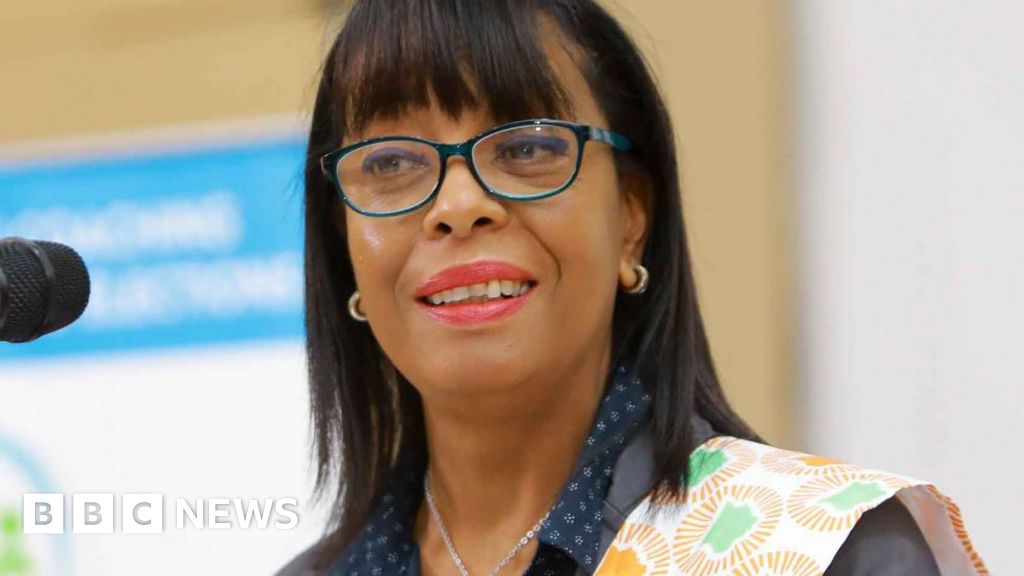Burkina Faso's junta expels top UN official over child rights report

Burkina Faso Expels Top UN Official Over Child Rights Report
Burkina Faso's military junta has expelled the United Nations' top official in the country, Carol Flore-Smereczniak, citing a contentious report on the impact of the ongoing jihadist conflict on children. The government declared Ms. Flore-Smereczniak, a Mauritian national, "persona non grata" following the publication of the report in March, which detailed alleged abuses against children by various actors, including government forces.
Report Details Alarming Child Rights Violations
The UN report, covering a two-year period, documented over 2,000 cases of child recruitment, killings, sexual violence, and abuse. It attributed responsibility to Islamist insurgents, government soldiers, and civilian defense forces. The report painted a grim picture of the conflict's devastating impact on children, highlighting the urgent need for protection and accountability.
Junta Rejects Findings, Cites Lack of Consultation
The Burkinabè government, led by Captain Ibrahim Traoré, which seized power in September 2022, vehemently rejected the report's findings. In a statement, the junta claimed it had not been consulted during the report's drafting and that the allegations were unfounded. The government further stated that the report lacked supporting documentation or court rulings to substantiate the claims of violations against children attributed to Burkinabè forces.
Escalating Conflict and Political Instability
Burkina Faso has been grappling with a severe security crisis since 2015, as jihadist groups affiliated with al-Qaeda and the Islamic State group have waged a relentless insurgency. The conflict has resulted in thousands of deaths and displaced millions, fueling political instability and leading to two military coups in 2022. Captain Traoré, upon assuming power, pledged to address the security situation within a short timeframe.
A Pattern of Expulsions: UN's Role Under Scrutiny
This expulsion is not an isolated incident. Ms. Flore-Smereczniak's predecessor, Barbara Manzi, an Italian national, was also declared "persona non grata" in December 2022 after publishing a blog post highlighting the crisis's detrimental effects on education and healthcare services. These expulsions raise serious questions about the operating environment for the UN and other international organizations in Burkina Faso, and the junta's willingness to accept external scrutiny.
Expert Analysis: A Sign of Eroding Relations
"These expulsions are indicative of a broader trend of strained relations between the Burkinabè government and international actors," explains Dr. Aisha Dabo, a West Africa security analyst at the Institute for Security Studies in Dakar. "The junta is increasingly wary of criticism and appears determined to control the narrative surrounding the conflict, even if it means undermining independent reporting and accountability mechanisms." Dr. Dabo also notes that the focus on sovereignty and perceived interference from external actors resonates with a segment of the population, further complicating the UN's role.
Rising Attacks and Concerns Over Human Rights
Despite the junta's promises, the security situation has continued to deteriorate. According to BBC data, jihadist group JNIM claimed responsibility for over 280 attacks in Burkina Faso in the first half of 2025, doubling the number from the same period in 2024. Furthermore, human rights organizations have accused the army of targeting civilians and suppressing political activity and freedom of expression.
Junta's Consolidation of Power
Last year, the military government extended its rule for another five years and announced that Captain Traoré would be eligible to run for president in 2029. Traoré has cultivated an image as a pan-Africanist leader, distancing himself from former colonial power France and seeking closer ties with Russia.
UN's Response and Future Engagement
The UN has yet to officially comment on Ms. Flore-Smereczniak's expulsion. However, the UN Secretary-General previously expressed regret over the expulsion of her predecessor, Ms. Manzi, while reaffirming the UN's commitment to engaging with the junta to support the Burkinabè people. The UN now faces the challenge of navigating a complex and increasingly restrictive environment to continue providing humanitarian assistance and advocating for human rights in Burkina Faso.
Historical Context: France's Declining Influence
The current situation unfolds against a backdrop of declining French influence in the Sahel region. Anti-French sentiment has been growing in Burkina Faso and other countries, fueled by perceptions that France has failed to effectively address the security challenges. This has created space for other actors, such as Russia, to increase their presence and influence.
Originally sourced from: BBC News Africa
